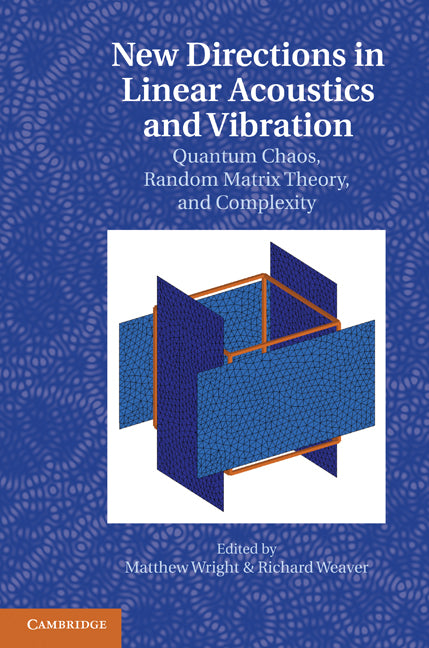Freshly Printed - allow 8 days lead
Couldn't load pickup availability
New Directions in Linear Acoustics and Vibration
Quantum Chaos, Random Matrix Theory and Complexity
An introduction to linear acoustics and vibration, which attempts to bridge the gap between theoreticians and practitioners.
Matthew Wright (Edited by), Richard Weaver (Edited by)
9780521885089, Cambridge University Press
Hardback, published 26 July 2010
284 pages, 94 b/w illus.
26 x 18 x 2.5 cm, 0.87 kg
Linear acoustics was thought to be fully encapsulated in physics texts of the 1950s, but this view has been changed by developments in physics during the last four decades. There is a significant new amount of theory that can be used to address problems in linear acoustics and vibration, but only a small amount of reported work does so. This book is an attempt to bridge the gap between theoreticians and practitioners, as well as the gap between quantum and acoustic. Tutorial chapters provide introductions to each of the major aspects of the physical theory and are written using the appropriate terminology of the acoustical community. The book will act as a quick-start guide to the new methods while providing a wide-ranging introduction to the physical concepts.
1. Semiclassical trace formula M. C. M. Wright
2. Wave chaos O. Legrand and F. Mortessagne
3. Random matrix theory R. L. Weaver
4. Gaussian random wave fields M. R. Dennis
5. Short periodic orbit theory E. G. Vergini and G. G. Carlo
6. Chaotic wave scattering J. P. Keating and M. Novaes
7. Elastic plate vibrations N. Søndergaard
8. Mesoscopics in acoustics R. L. Weaver
9. Diagrammatic methods J. A. Turner and G. Ghoshal
10. Time-reversed waves M. Fink
11. Ocean acoustics S. Tomsovic and M. Brown
12. Mesoscopic seismic waves M. Campillo and L. Margerin
13. Random matrices in structural acoustics C. Soize
14. Built-up engineering systems R. S. Langley.
Subject Areas: Mechanics of fluids [TGMF], Wave mechanics [vibration & acoustics PHDS], Physics [PH]


